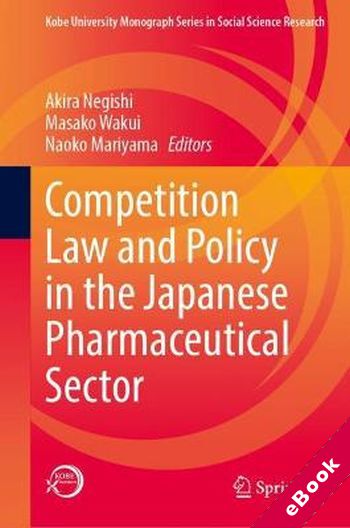
The device(s) you use to access the eBook content must be authorized with an Adobe ID before you download the product otherwise it will fail to register correctly.
For further information see https://www.wildy.com/ebook-formats
Once the order is confirmed an automated e-mail will be sent to you to allow you to download the eBook.
All eBooks are supplied firm sale and cannot be returned. If you believe there is a fault with your eBook then contact us on ebooks@wildy.com and we will help in resolving the issue. This does not affect your statutory rights.
This is the first book published that focuses on competition law and policy in the Japanese pharmaceutical sector. It consists of chapters written and edited by academics who research the industry from various perspectives, including economics, competition law, pharmaceutical regulations, and intellectual property law.
Competition policies involving pharmaceutical products attract attention from academics and policymakers worldwide. The pharmaceutical industry is regulated by drug laws that vary from country to country and are affected by differing practices and industrial structures. The book begins by examining drug regulations and trade practices in the industry that are peculiar to Japan and its healthcare system. It then presents the Japanese Antimonopoly Act and cases involving it, and discussions of current competition law issues in the Japanese pharmaceutical industry. The book also discusses innovation and intellectual property and economic analyses of pharmaceutical regulations and drug discovery. The chapters include comparative studies on Japanese regulations vs. those in the European Union and the United States. Japan is one of the biggest pharmaceutical markets in the world. With this in mind, the book provides "one-stop shopping" for anyone interested in pharmaceutical regulations in the country. Covering the basics but extending to in-depth explorations of complex problems, this book appeals not only to students and academics, pharmaceutical companies and regulators, but also to those dealing with real-world policy issues that encompass competition policy, intellectual property, and pharmaceutical regulation.